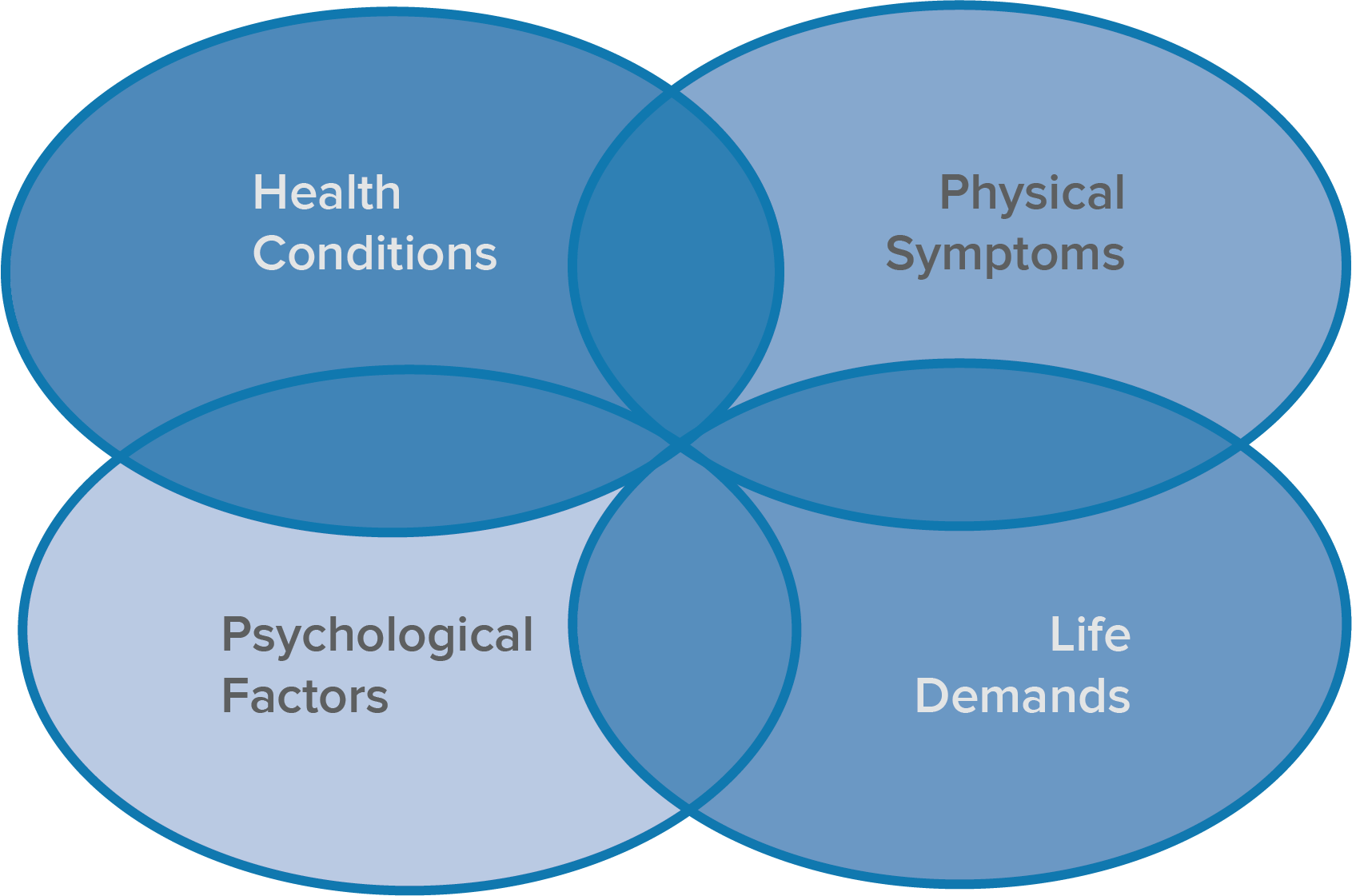What is Self Management
Key Points:
- Because everything is connected, a negative change in one area (e.g. poor sleep) can result in negative changes in other areas (e.g. increased anxiety, trouble keeping up at school, more headaches).
- On the other hand, a positive change in one area (e.g. better sleep) can create positive changes in others (e.g. less anxiety, more energy at school, less symptoms).
- Seeing how everything is connected helps us understand why our symptoms change from day to day, and allows us to focus on those steps we can take in one area to improve how we feel overall.
What is Self-Management?
Self-management is defined as you taking responsibility over your well-being and behaviour. Instead of being a ‘passenger’ like in a car, you can instead learn to be the ‘driver’ and help direct your recovery process. As you learn more about your concussion, you can equip yourself with many tools to support you and your recovery.
Why is becoming a self-manager helpful?
Becoming your own self-manager is a helpful skill to use while recovering from an injury. It encourages you to take an active role in your recovery, by better understanding your current level of function, what activities reduce risk and help you tolerate and manage your symptoms and how your actions can change your symptoms. This information from you is also super-helpful to the team supporting you in your recovery.

How do I become my own self-manager?
Educate yourself on concussion by using this guide.
Learn what activities and habits make you feel better.
Evaluate how changing your actions influences your recovery. For example, are my symptoms better after going for a short walk?
As you learn more about yourself and your concussion, it is probable that problems may arise. By developing a plan, we can better choose what activities are helpful. For example, it may be helpful to take a 5 minute relaxation break in the middle of a 30 minute homework session.
Communicate with your healthcare team, friends, and family. A good self-manager knows when to ask for help.

It's All Connected
Even if you have prolonged symptoms (symptoms lasting for over a month), a full recovery of symptoms is likely.
There are interconnections between:
- The health condition (your concussion),
- Physical symptoms (e.g., headaches, poor sleep, and pain),
- Psychological factors (e.g., concentration and memory issues, stress, anxiety, and depression),
- Social factors (e.g., life demands for school and activity, family stressors, navigating friendships).
Because everything is connected, a negative change in one area (e.g. poor sleep) can result in negative changes in other areas (e.g. increased anxiety, trouble keeping up at school, more headaches).
On the other hand, a positive change in one area (e.g. better sleep) can create positive changes in others (e.g. less anxiety, more energy at school, less symptoms).
Seeing how everything is connected helps us understand why our symptoms change from day to day. It also allows us to focus on those steps we can take in one area to improve how we feel overall.